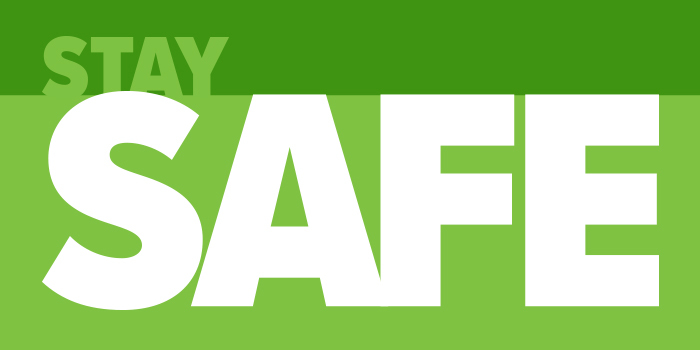Safer Choices for People Who Use Drugs

Need naloxone? Find it here.
Naloxone is a medication that reverses opioid overdoses. You can buy it from a pharmacy (even without a prescription) or get it free from many community organizations, such as the local health department.
Using alone? Call 877-696-1996.
The Never Use Alone hotline connects you to someone who stays on the line while you use. If you become unresponsive, they will call for a first responder.
Sharing syringes? Use bleach.
Bleaching can reduce the likelihood of being exposed to HIV and hepatitis C. Keep scrolling for more information.
Prevention Tips
Haven’t been using? Your tolerance may be lower. Use a smaller amount.
Your tolerance for opioids (like oxy or fentanyl) could drop in as little as 3 – 7 days.
Haven’t used in a couple of months? Use a smaller amount to reduce your chance of overdose.
Use an alcohol wipe.
Before using, wash or sanitize your hands and any surfaces you use to prepare the drugs. Then, use an alcohol wipe or soapy water to clean your injection site.
Switching veins or the way you use (smoking or snorting instead of injecting) can decrease the chance of getting abscesses or other infections.
Use new syringes, pipes, straws and other works.
It is best not to reuse or share needles or other drug use equipment like cottons, cookers, ties, water, snorting straws or pipes. If you are sharing or reusing, rinse your syringe with sterile water and bleach.
Infections like HIV and hepatitis C can be passed through a small amount of blood from someone else’s body. This means even if you are not sharing a syringe, you can be exposed to blood from other drug-use equipment.
If you are actively using drugs, testing for HIV and hepatitis C every three to six months can help keep you and others healthy.
Avoid using alone.
Never use alone or behind locked doors when using. You can also call the Never Use Alone hotline (877-696-1996) for someone to stay on the line and call for a first responder if you become unresponsive.
Test your drugs and use them slowly.
Doing a tester shot or using a smaller amount of a drug can help you decide how strong your supply is and reduce the chance of overdose or overamping.
Space out your doses to figure out how the substance affects you.
There has been an increase in fentanyl found in stimulants, like cocaine, as well as pills purchased in street-based economies. Test drugs with a fentanyl test strip, when possible.
Be ready to respond to an emergency.
When you are using with another person or in a group, make sure at least one person is not using at all times so someone is able to use naloxone and respond to any emergencies that could arise.
Rest, eat, and hydrate.
Your health impacts how your body responds to overdoses and overamping. Be sure to rest, eat and hydrate.
Dispose of used equipment safely.
If you cannot put used syringes in a location labeled to take them (such as a biohazard bin), protect others by putting used syringes, cottons, and cookers in a thick, plastic container with a secure top (like a laundry detergent bottle). Tape it closed and label it: "Sharps, Do Not Recycle".
Keep naloxone with you, and call 911.
Naloxone reverses the effects of an opioid overdose. Find it in your community here.
Remember Missouri’s Good Samaritan Law protects you and the person overdosing from arrest for possession of drugs and drug paraphernalia.
Be aware of skin infections, abscesses and other wounds.
Try to keep wounds covered and wash them regularly with soap and water. If you have a fever or chills, seek medical care immediately. Need more information? Click here.
Access healthcare.
A trusted medical provider can help you make the best decisions for your health.
Health services, like HIV and hepatitis C testing, PrEP/PEP, or hepatitis A and B vaccines, may be available at your local health department or community health center for little or no cost.
Harm Reduction Resources
- Harm Reduction Media Downloads
- Harm Reduction Coalition
- Safety Manual
- Fentanyl Test Strips
- NEXT Distro (resources and mail-based naloxone)
- Never Use Alone Hotline
- NASEN
- Wound Care
- Xylazine (Tranq)
- Harm Reduction Media Downloads
HIV & Hepatitis Information
- CDC Hepatitis C and Injection Drug Use (Fact Sheet)
- PrEP (HIV Pre-Exposure Prophylaxis)
- HIV
- HIV Testing Locator
- Hepatitis B
- Hepatitis C
General Information and Referrals
- Call or Text "988" for the Suicide & Crisis Lifeline
- SAMHSA Treatment Locator
- Missouri Treatment Providers (insurance not required)
- Hepatitis C Elimination Plan
Data
Laws
Missouri Information
Need Training or more Information?
Missouri Department of Health and Senior Services can provide more information and presentations on harm reduction, HIV, viral hepatitis, and STDs. To request a presentation or for more information, email HarmReduction@health.mo.gov.
